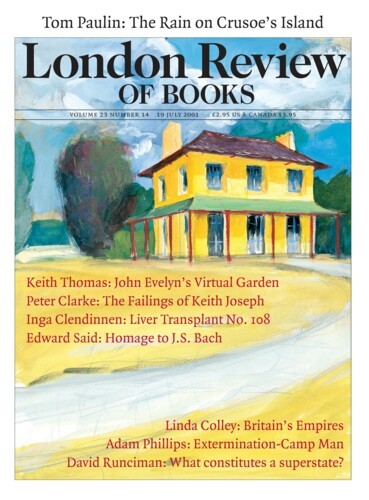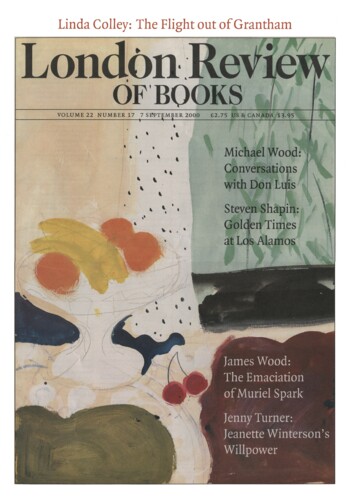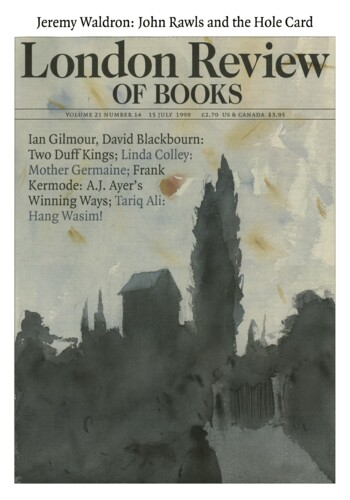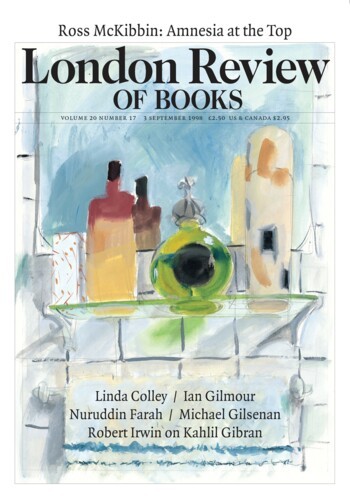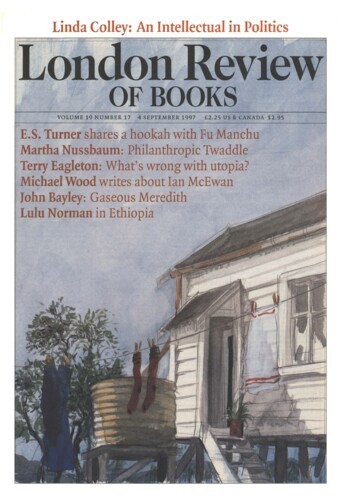Multiple Kingdoms: The origins of the British Empire
Linda Colley, 19 July 2001
‘The history of England,’ Sir John Seeley declared in The Expansion of England (1883), ‘is not in England but in America and Asia.’ Like many aphorisms, this was at once consciously perverse and entirely apt. Seeley wrote as a fervid supporter of imperial federation, ‘Greater Britain’, but he was also taking issue, as in a preceding series of lectures...
